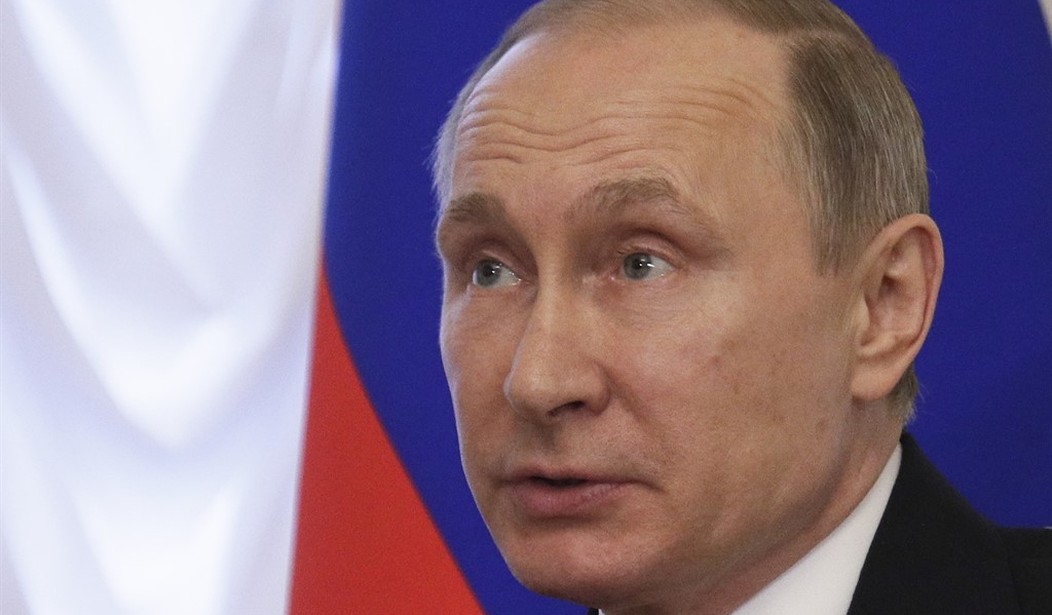PARIS -- An apparent suicide bombing on a metro train killed at least 14 people and wounded dozens of others this week in St. Petersburg, Russia. The attack took place during Russian President Vladimir Putin's visit to St. Petersburg, his hometown.
Putin and U.S. President Donald Trump have expressed interest in cooperating to eradicate radical Islamic terrorism. Such cooperation with Russia would be a shift from the Obama administration's strategy of sponsoring "Syrian rebels" and maintaining close ties with terrorism-sponsoring allies in the Persian Gulf.
But here's the problem for the establishment: If Russia and the U.S. cooperate to eliminate terrorism and other security threats, the prospect of peace would be a jolt to the military-industrial complex, making it more difficult to scare up taxpayer cash.
Developed nations are now well into an era of belt-tightening, and many voters specifically elected Trump because of his proven experience as a businessman with an eye for the bottom line. Trump promised to reel in the freewheeling spending of tax dollars. But to keep the government cash flowing into the deep pockets of the military-industrial complex, there always has to be a threat. It's not hard to see the motivation to portray Trump as some sort of Manchurian candidate.
When the terrorism threat temporarily subsided in the wake of the 2007 George W. Bush-ordered troop surge in Iraq, and prior to the Obama-facilitated rise of the Islamic State, we started being told about -- and being sold on -- the cybersecurity threat. Of course, this threat could only be vanquished by burying it under a pile of taxpayer money. And hey, why not revive the Cold War while we're at it? After all, the Russian bad guy has always stoked the public's imagination better than the Islamic-terrorist villain. One need only look at their respective frequencies in Hollywood films.
Recommended
Here in Europe, we've been witnessing a parallel hysteria on the part of the European Union, as its popularity continues to plummet among citizens of its member states due to its perceived ineptitude. To stay relevant, the EU has been desperate to create a purpose for itself, so it has attempted to convince citizens that the EU's new role is to protect them from the mean Russians.
Meanwhile, U.S. Sen. Richard Burr, chair of the Senate Intelligence Committee, has warned us that "the Russians are actively involved in the French elections" -- but declined to offer any details, of course. This warning was subsequently pushed by the heavily state-subsidized French establishment media, whose benefactors were recently prodded by a European parliamentary resolution to actively counter media that didn't fit the anti-Russia narrative.
But Trump is standing in the way of all the threat-peddling. Last week, America's new ambassador to the United Nations, Nikki Haley, suggested that Trump was interested in winding down the war in Syria without securing the regime change sought by Obama and those with an interest in pursuing conflict and chaos for profit. "And when we're looking at this, it's about changing up priorities, and our priority is no longer to sit and focus on getting (Syrian President Bashar) Assad out," Haley said.
Oh no, what if terrorism is eradicated, and Trump is getting along with Putin, and there are no more dangers that can be used to drain billions of dollars out of people's pockets?
Trump has proposed increasing the defense budget to $603 billion, but congressional Republicans are nonetheless criticizing Trump's defense-spending increase as insufficient.
"President Trump intends to submit a defense budget that is a mere 3 percent above President (Barack) Obama's defense budget, which has left our military underfunded, undersized and unready to confront threats to our national security," Republican Sen. John McCain said in a statement.
McCain, chairman of the Senate Armed Services Committee, has long been an outspoken critic of Russia. Without McCain promoting Russia as a threat, how could he possibly justify the kind of taxpayer largesse that he's demanding?
The Senate Intelligence Committee held a hearing last week on alleged Russian interference in the U.S. presidential election, but the committee has yet to uncover any evidence of collusion between Russia and Trump. If there's one thing on which Trump and Putin can be accused of colluding, it's recognizing the establishment's insistence on using the threat of fear for self-justification and profit at the average citizen's expense.

























Join the conversation as a VIP Member